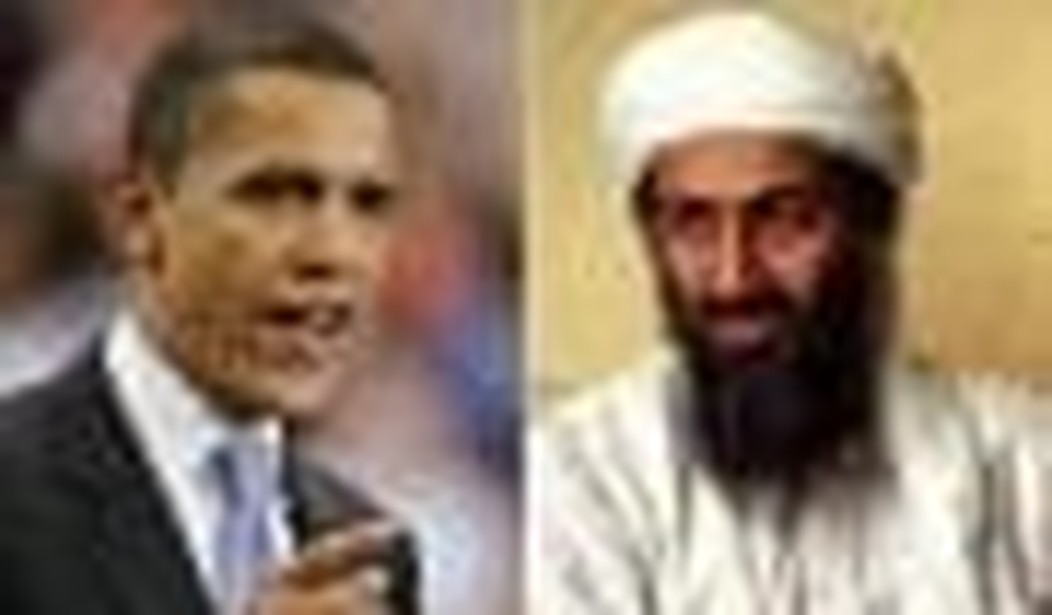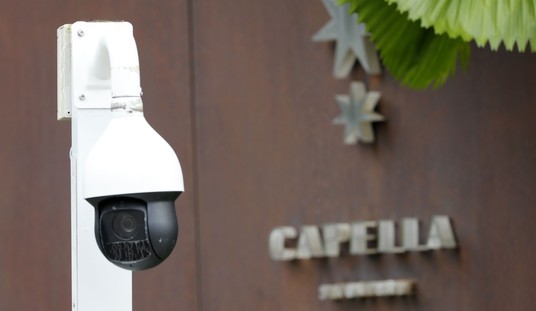We are a bit less than 18 months out from the 2012 presidential election, and the GOP field has no front-runner. A few of the GOP’s announced contenders or possible candidates have national name recognition (Romney, Gingrich, Trump, Huckabee, Palin, Paul), but others (Pawlenty, Daniels, Cain, Bachmann, Santorum) do not. As a result, the best indicator of how the president is doing in his re-election bid is to look at his approval ratings and how he fares against a generic (unnamed) Republican opponent.
The Obama campaign, aiming to raise a billion dollars or more, has gotten off to a fast start, with a national fundraising swing to attract contributions from wealthy Democrats in New York, California, Illinois, and Texas, among other states.
Then on May 1 came the announcement of the killing of Osama bin Laden.
A barrage of instant polls conducted on one day or over two days seemed to show the president got a big boost in his approval rating (Quinnipiac, CBS/New York Times, Washington Post/SRBI), moving from the high 40s to levels in the 50s. Then came an Associated Press-GfKpoll that showed the president at 60% approval, a level not reached since early in his term in 2009. The Associated Press poll was criticized for oversampling Democrats (46% versus 29% for Republicans).
Meanwhile, the two polling groups which conduct surveys every day (or almost every day) — Rasmussen and Gallup — showed more modest gains for the president. Both of these surveys revealed the president’s approval ratings rising even before the announcement of bin Laden’s death. This was likely due to the release of President Obama’s long-form birth certificate, which seemed to take the air out of that issue and the Trump campaign.
Gallup had the Obama approval level rising to 52%, and tailing off slightly since (50% on May 13); Rasmussen showed a bump to 51%, now back down to 47%. The 47% approval rating for Obama in the latest three-day Rasmussen survey released on May 13 is a point below the level recorded on Election Day in 2010, a day that was a serious setback for congressional Democrats. In addition, both of the daily pollsters showed Obama with small leads (2-3%) over a generic Republican nominee, with the Obama re-elect number only in the low 40s, even after the boost from the raid.
Democratic pollster Mark Mellman, anticipating that the bump in Obama’s approval rating would be transitory, wrote that the short-term bump was expected, given the history of polling results after significant foreign policy developments in the past, and that a gradual fallback to lower levels was to be expected, especially given the state of the economy.
Mellman predicted that “President Obama would get a single-digit bump”:
• It would come disproportionately from Republicans and independents.
• It would be greater if there was unanimous praise for the president’s action and less if press and congressional commentary revealed divisions.
• Given the economic situation, the gains were likely to be transitory.
Mellman also pointed out the biggest change in Obama’s approval numbers was in his handling of the war on terror, the war in Afghanistan, and foreign policy in general. Opinion on Obama’s management of the economy remained decidedly negative.
Mellman’s analysis points to one critical way in which the bin Laden death will help the president. Prior to the event, the president was being criticized for, at times, incoherent and inconsistent foreign policy. This culminated in Ryan Lizza’s quote from one Administration official in a New Yorker article that the president wanted “to lead from behind.” The Libya mission began while the president was toasting Brazil for its offshore oil and gas exploration, and the president’s talk to the nation upon his return did everything possible to suggest that we were part of a group of nations (NATO command) acting with UN approval and that the U.S did not have a major role in the fighting.
With the Libyan mission seemingly stalled, and with American combat casualties rising in the tenth year of the war in Afghanistan, the comparisons between Jimmy Carter, the last one-term Democratic president, and Obama became more frequent. Carter’s image and standing with the public suffered from the failed mission in Iran to release the U.S embassy personnel taken hostage in 1979. Carter also was blamed for stagflation — a combination of high unemployment and even higher inflation.
The successful mission in Pakistan in which Bin Laden was killed will give Obama some breathing room on foreign policy. This is not to say that things are going well in this area. The U.S. seemed to be tongue-tied and helpless as the Syrian government, led by Bashar Assad, mowed down its own people.
Top administration officials, including Secretary of State Hillary Clinton, and Democratic senators, including John Kerry,were still calling Assad a “reformer” up until the past week. The Libyan mission may turn out well (there has been increased pressure on Gaddafi in recent weeks), but for now, the conflict looks a bit like a civil war, not likely to be over that quickly.
Despite the president’s foreign policy woes, the 2012 presidential race will be decided one way or the other on two principal factors — the stature and ability of the Republican nominee, and the state of the economy. A poor Republican candidate can blow a winnable opportunity. The president’s early fund-raising haul, and his pandering to groups important to his re-election bid — Latinos, gays, unions, environmentalists — is evidence that the White House expects a much closer race in 2012 than in 2008,when Obama carried 28 states, received 69.5 million votes (9.5 million more than McCain), and won just under 53% of the popular vote.
North Carolina, Virginia, Indiana, Colorado , Nevada, New Hampshire, Wisconsin, Ohio, Florida, Iowa, Pennsylvania, Michigan are all states Obama won in 2008 and that are in play in 2012. These states are in play because the unemployment rate is still at 9% after trillions in expanded federal spending and stimulus packages, and despite trillions poured into the economy by the Federal Reserve Bank. The annual federal deficit and accumulated federal debt are at record levels, and the public is unconvinced that the president and his party are serious about cutting federal spending. Add to this that gas prices are at $4 per gallon on average nationally, and even the most favorable liberal media spin on why this is a good thing is not selling to those who need to fill up.
With stimulus spending winding down, and the 2% Social Security tax cut expiring at year end, the 2012 numbers for the economy may not look much better than they do today. The president may look a bit helpless in terms of getting the economy moving and reducing the unemployment rate and the deficit.
Barack Obama’s election victory in 2008 was one that made many Americans feel good about their country and the racial progress that has been achieved. Americans bought into the hope and change monikers of the Obama campaign. But the second time around, the president will be judged by his record, not the promise of what is to come. Tyrone Willingham, the former Notre Dame football coach, and Frank Robinson, the Hall of Famer who was the first black manager in baseball can tell the president that it is great to be a door opener (or ceiling smasher), but then you need to show results to keep your job.
And the voters may be even more fickle than the impatient fans in South Bend who root for their beloved Fighting Irish.









Join the conversation as a VIP Member